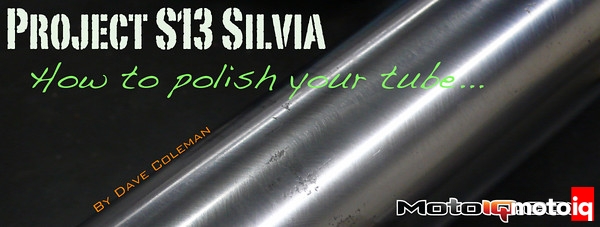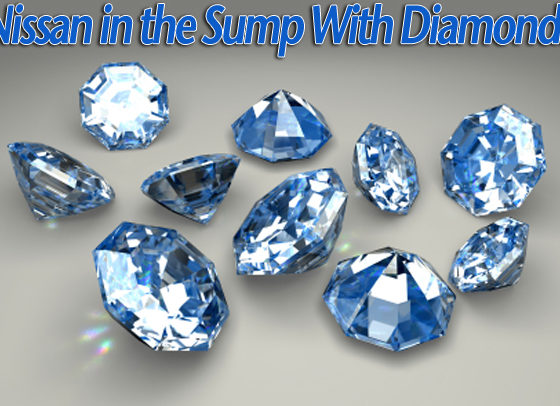,
 |
Ok, now that you get the basic idea, here’s the step-by-step on how to do it: First, unthread the clamp mount from the bottom of the strut tube. Then, with a very thin 9mm wrench, remove the adjuster. |
|
 |
Next, remove the big, 22mm nut holding the damper to the strut tube. (Obviously, this picture was taken on an earlier, exploratory teardown before I figured out the right way to do things.)
|
 |
On the backside of the strut tube, this oval-shaped recess matches up with two flats machined into the end of the shock rod.
|
 |
These flats hold the rod so you don’t have to worry about it spinning as you turn the wrench.
|
 |
Now, repairing the damaged damper body. The burnished spot is clearly visible, as are chatter marks where the under-lubricated bushings were apparently sticking and slipping. I should have noticed this long before it got this bad.
|
 |
If you have access to a lathe, spin the strut while polishing the shaft with red Scotchbrite lubricated with a little water or WD40. If you don’t have a lathe, you can also use a drill press and grab the top of the strut in the drill chuck, just be careful not to damage the threads. |
 |
| After a thorough polishing, most of the damage was gone, with the exception of some minor pitting and a slightly dark spot where the burnishing had been. If you properly stroked the shaft while the late was spinning (remain calm.) you sould end up wit The crosshatched finish should help retain lubrication in the future. |
 |
| The bump stops on inverted struts are hidden inside the strut tube, so it wasn’t until I tore them down that I finally saw how long they were. Too long. That’s one more reason to tear down and re-lube before you install new JICs. You can also trim the bump stops while you’re in there. |
 |
| To lube the strut, we went to the local motocross shop and got the same Bel-Ray waterproof grease used to lube motocross forks. |
 |
| After cleaning out all the old grease and crud, I liberally applied grease to the new bushings. Most of this grease will get shoved into the bottom of the tube when the strut body is inserted. |
 |
| A little grease on the strut body helps ensure something slippery gets dragged in when the grease in the tube gets pushed out. |
 |
| Before reinstalling the grease seal dig it out of its holder and clean it thoroughly. |
Just before you install the grease seal, smear a thin layer of grease on the strut tube. As the seal scrapes the grease off the tube, it will trap some grease between the seal and the upper bushing, helping keep it lubricated as the strut moves. After this, just put the car back together and keep an eye out for wear next time. |  |
| Go back to the main story-> |  |




